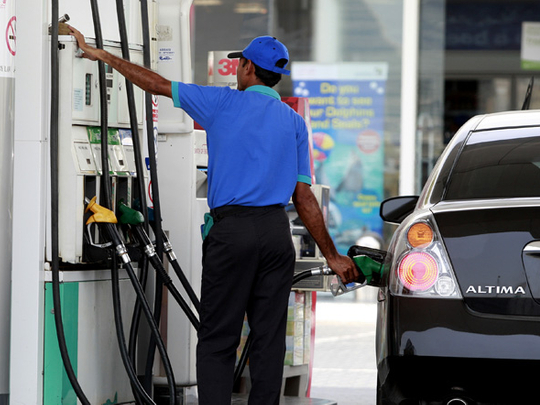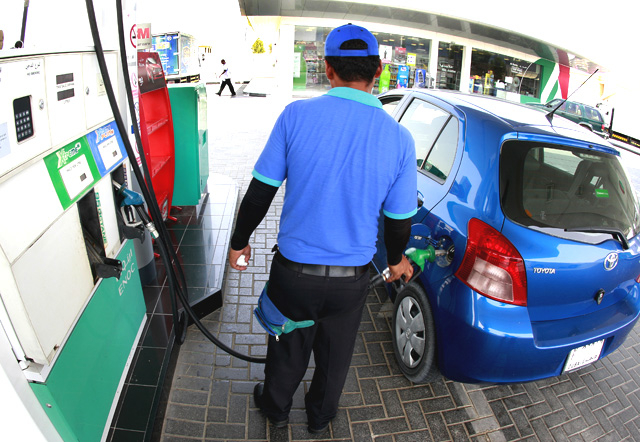
Abu Dhabi: The announcement of up to 14.2 per cent increase in petrol prices, set to be effective from Thursday, will likely exert inflationary pressures on the UAE economy, but the move to gradually align domestic fuel prices with the market will cut losses of oil retailers and curb wasteful consumption, say experts.
"This will have an impact on the prices of manufactured products and consumer goods.
"All commodities that have petrol as a major input in their production will see an increase in their cost of production," Mohammad Amerah, an Abu Dhabi-based economist told Gulf News.
"The producers are going to pass on the increase in fuel prices to consumers. It will also have an impact on transportation costs and some consumers may be forced to cut down their driving to save money," he added.
Eleven tips to make summer drives more affordable
Tips: How to cut your gas bill
Policy rethink
Kate Dourian, Middle East Editor of Platts, a global energy information provider, feels unless the Gulf countries rethink their policy on state-controlled fuel prices amid their rising domestic oil product consumption, they will have a lot less oil to export.
The UAE's oil marketing companies on Monday decided to raise petrol prices by Dh0.20 a litre in a move to mitigate accumulated and growing losses these companies are sustaining due to continuous surge in cost of the product and selling them well below their cost.
Petrol prices at pumps owned by Abu Dhabi National Oil Company (Adnoc), Emarat, Enoc and Eppco currently range from Dh1.41 to Dh1.63 per litre. After the increase is effective, petrol prices will range from Dh1.61 to Dh1.83 per litre at the pumps.
Some UAE residents say the second petrol price increase announcement in less than three months is a bit harsh.
"This is yet another burden. The food prices are up, house rents and school fees are increasing, there's parking fees... definitely the savings of expatriates are going to be hit," said Mohammad Zaman, a Bangladesh national.
"It's insane that petrol prices have risen yet again in less than three months. I drive a four wheeler, and the hike adds a further burden to my expenses. Dh0.20 per litre seems like a small hike, but in reality, when actually added the price change will be a burden on a lot of people, including myself," said N.A., a British expatriate.
"I spend around Dh600 a month on filling petrol in my Toyota Yaris. For people like me, whose monthly income doesn't exceed Dh7,000, the petrol price increase is going to hit us hard," said Afiq Hassan, a Pakistan national.













